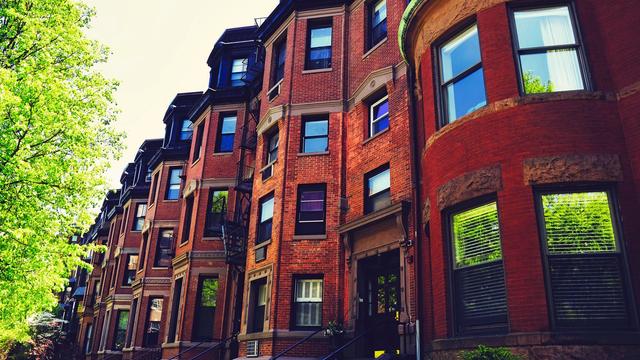More Affordable Housing Coming to Halton and Beyond
Published November 23, 2017 at 11:05 pm

It’s no secret that the middle class is disappearing in Halton — in fact, high- and very-high income neighbourhoods are skyrocketing in Halton.
It’s no secret that the middle class is disappearing in Halton — in fact, high- and very-high income neighbourhoods are skyrocketing in Halton. Now, the federal government has announced the National Housing Strategy, which has revealed that more affordable housing is indeed coming to Halton and beyond.
The 10-year, $40 billion plan aims to strengthen the middle class, according to the Trudeau government. The National Housing Strategy was officially released on Wednesday, November 22, 2017. Many would say it’s about time.
“Over the next decade, the National Housing Strategy will remove 530,000 families from housing need, cut chronic homelessness by 50 per cent and change the face of housing in Canada forever,” says the federal government of the strategy, entitled “A Place to Call Home.”
According to the government, there are currently 1.7 million Canadians that don’t have a home that meets their basic needs.
Can you imagine a Canada where everyone can afford a home?
Well, the strategy aims to construct over 100,000 new, affordable homes across the nation over the next decade.
The plans aims to create “livable comunities” where “families thrive, children learn and grow, and their parents have the stability and opportunities they need to succeed” and take steps towards ensuring “no one is ever refused a home because of their gender, religion or background.”
In terms of the plan’s goals by the numbers, alongside constructing 100,000 affordable homes, it aims to repair 300,000 existing units, “protect” 385,000 families from losing their homes, and support 300,000 households with a portable housing benefit.
The Canada Housing Benefit is a $4 billion pool that is set to launch in 2020. Basically, it will help families struggling to afford housing be able to pay their rent. While a household will have to pay the majority of its rent, the government will offer up to $2,500 on average in support per family.
That includes “potentially those living in social housing, those on a social housing wait-list, or those housed in the private market but struggling to make ends meet” and extends to those in rural communities, as well.
“The goal of this historic strategy is to make sure Canadians across the country can access housing that meets their needs and that they can afford,” says A Place to Call Home’s website.
“To achieve this goal, the strategy will first focus on the most vulnerable Canadians. This includes women and children fleeing family violence, seniors, Indigenous peoples, people with disabilities, those dealing with mental health and addiction issues, veterans and young adults.” That also includes people experiencing homelessness.
Through the strategy, the government has promised at least 7,000 new shelter spaces for survivors of family violence, 12,000 new and affordable units for seniors, and at least 2,400 new and affordable spaces for those with developmental disabilities.
The government is definitely addressing a general need across Canada, but of course, needs for affordable housing in individual communities across Canada are unique, so it’ll be interesting to see how the National Housing Strategy affects each one in the coming years.
And while the strategy doesn’t offer all of the specifics, it’s a good general outline of how the country is moving forward on more affordable housing as a whole.
To check out the full strategy, click here.
INhalton's Editorial Standards and Policies




